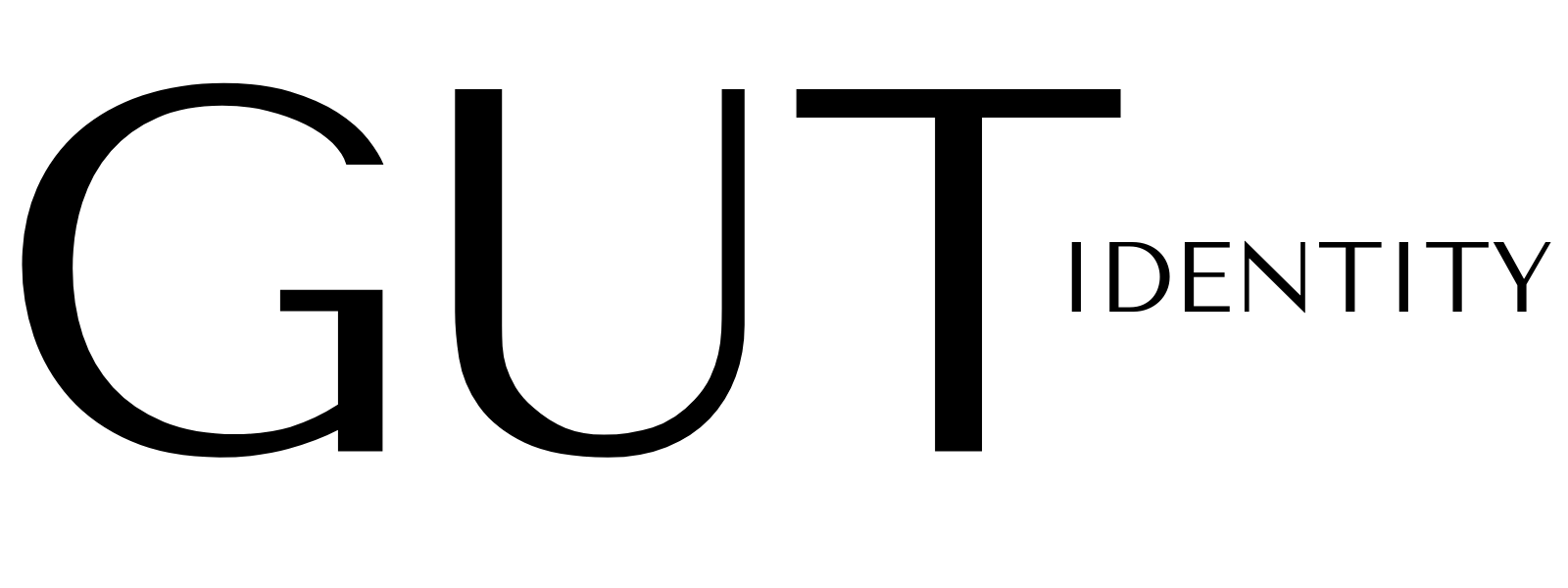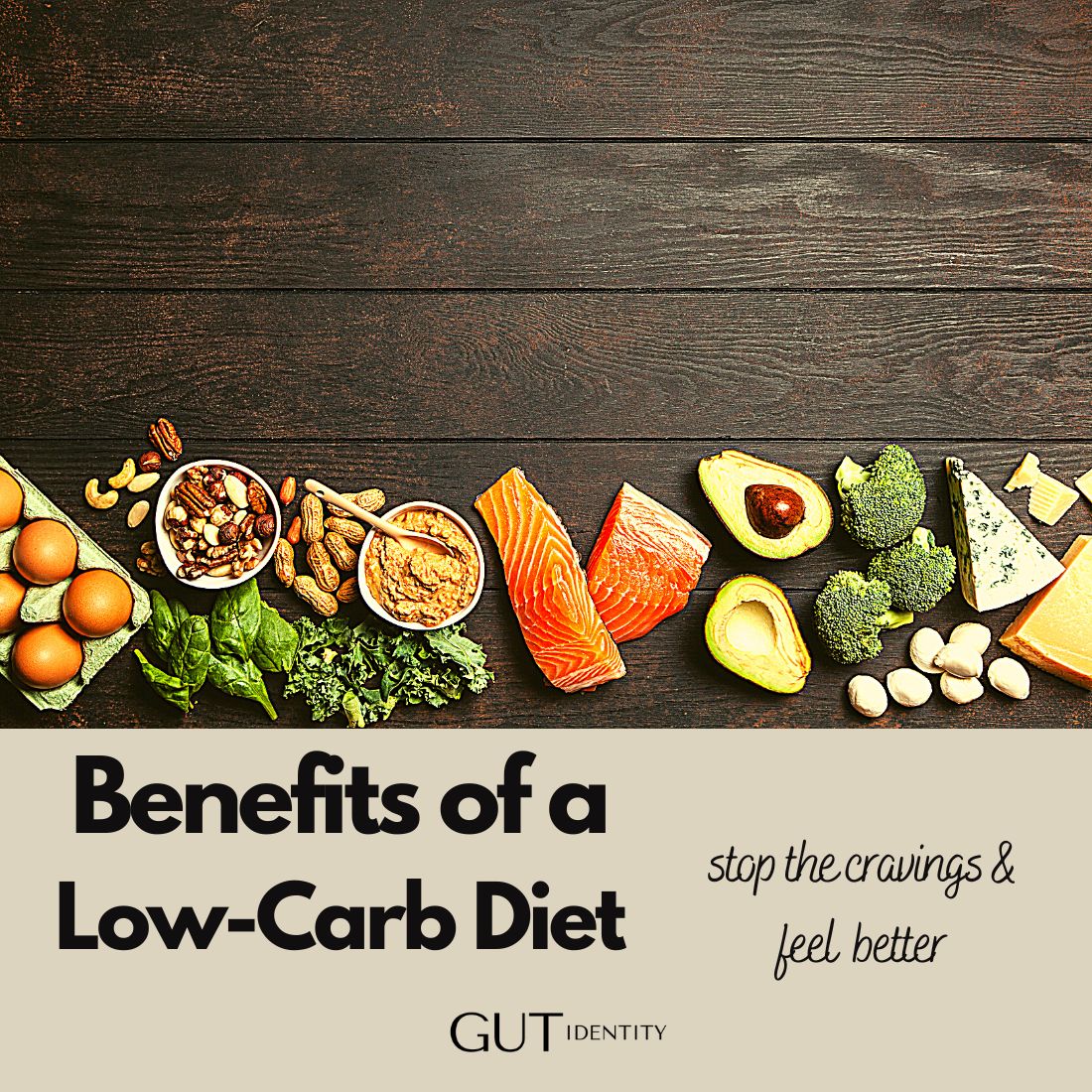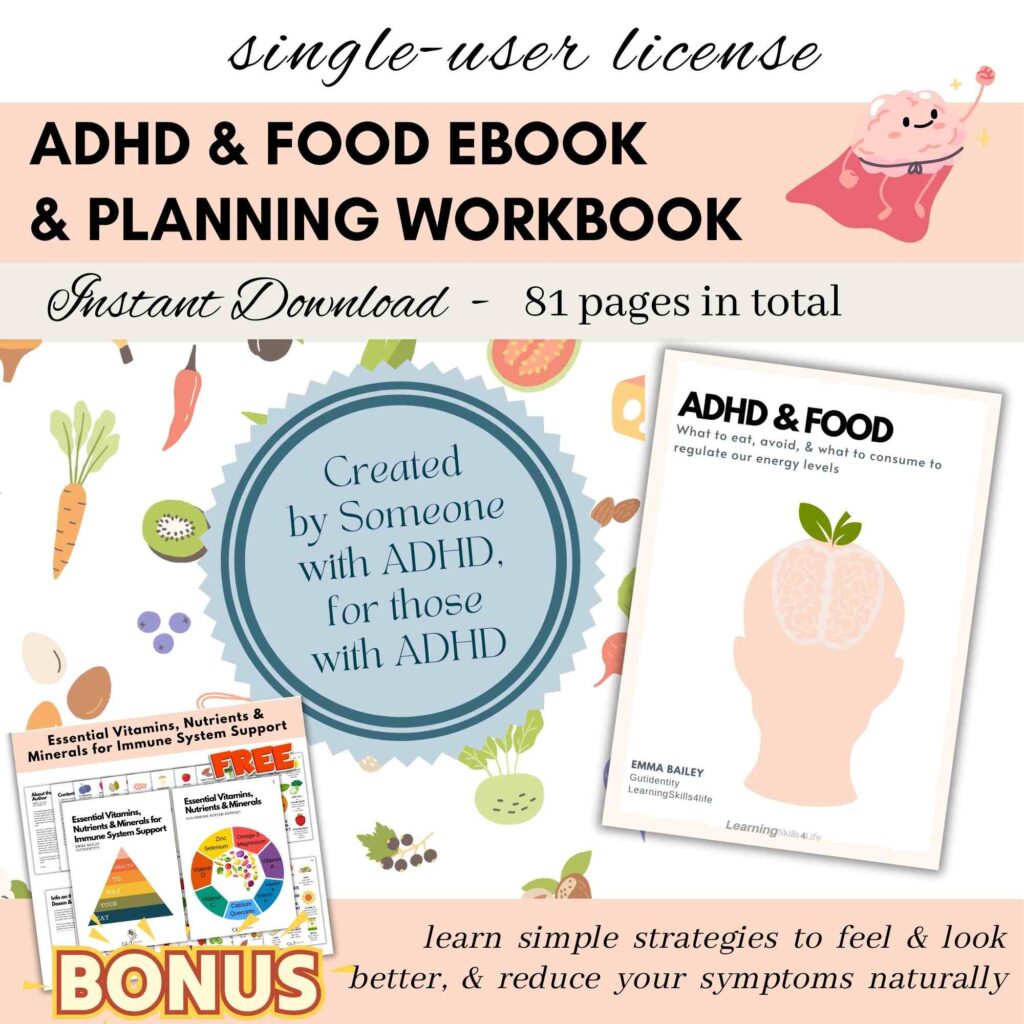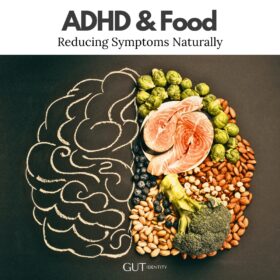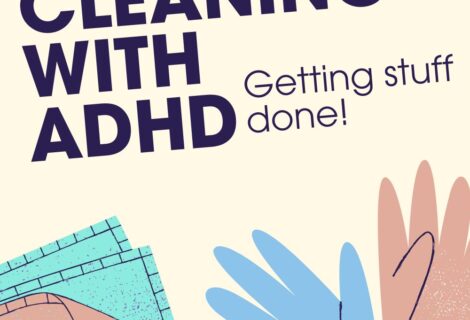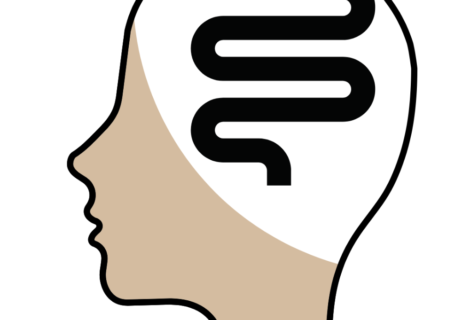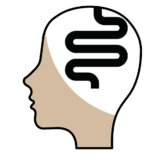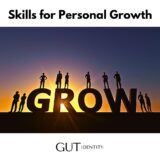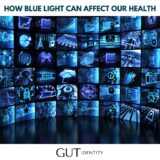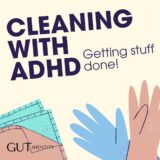There are many benefits to following a low-carb diet and some of those I’ll outline here. Whether we want to improve our general well-being or reduce cravings, following a low-carb diet can help us regain some control over our eating, and how we feel in general. It’s also not so much of a diet per se, but a lifestyle I’ve chosen that’s something I can keep up long-term.
Following a low-carb diet has helped me immensely and given me more control over my food choices, and how much energy I get during my day, plus it’s also played a key role in reducing brain fog and improving my concentration. As an adult with ADHD, improving my focus and concentration is top priority. When I started changing my diet to low-carb, I noticed a great difference in how calm I felt, and my ability to stay on task. So I’ve made a little infographic on my top reasons for living this way which may help those in a similar situation to myself. So, let’s break it down….
my top 8 reasons for following a low-carb diet
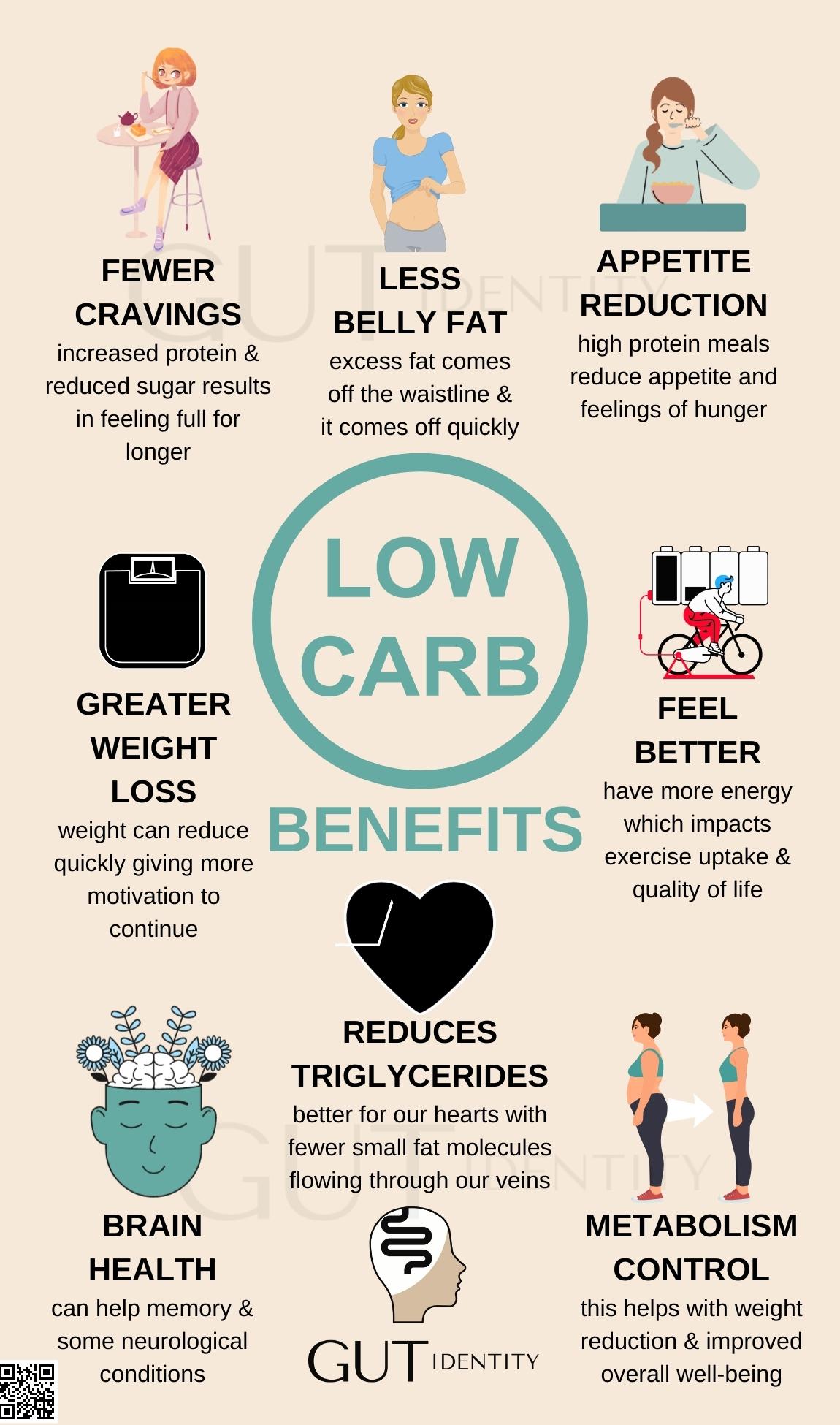
appetite reduction on low-carb
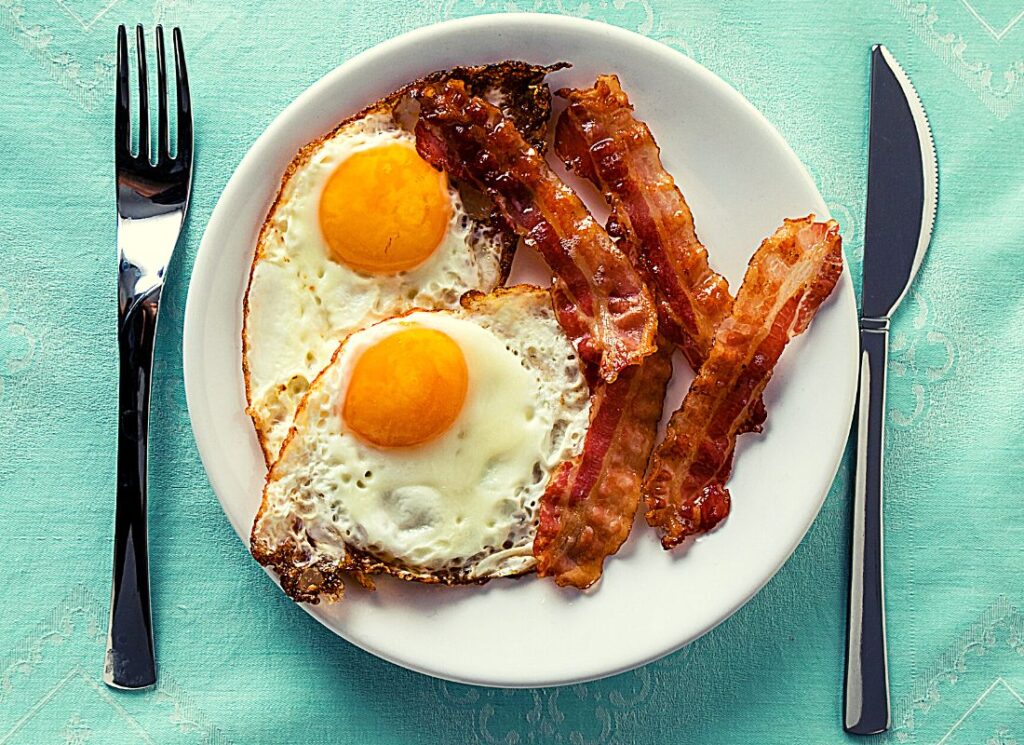
I start my day with a high-protein breakfast and this keeps me full until lunch. It’s not complicated and easy for me to prepare. Usually, I stick to bacon and eggs but have lately branched out to low-carb breakfast sausages (with no nasties like added hormones). Sometimes I add spinach for some extra nutrients and fibre, but mostly it’s just straight protein. If you’ve read my earlier stuff, you’ll know I used to eat like crap, often starting the day with lollies or chocolate. Following this regime, I’d be hungry again by 10:30 am on the search for more sugar.
Eating a low-carb mostly protein breakfast is tasty and definitely something I can keep up long-term. I eat a lot of salmon and fish, but also have lamb and chicken for dinners. I stick to low-carb vegetables like cauliflower and broccoli and also eat a lot of low-carb salads.
feeling better with low-carb

Once I got my eating habits changed, my general well-being improved in all aspects of my life. Sugar made me feel sluggish and only really gave me energy for a short time. A large majority of my sugar intake came from energy drinks. This fake ‘energy’ not only made me feel like crap, it literally rotted my gut and I definitely think it was a contributing factor in me developing coeliac disease. The outcome of this was a complete overhaul of my diet and I’m happy to say I no longer drink these drinks and feel so much better for it. I’m clearer in the head and can actually think straight without the need for anything additional. Our skin clears up. We look more vibrant, have fewer blemishes, and look healthier. We can have more energy to exercise which in turn, helps us feel better about ourselves and our choices.
But it took me a while to get there. There were many reasons for me wanting to reduce my sugar intake. Here are a few of them.
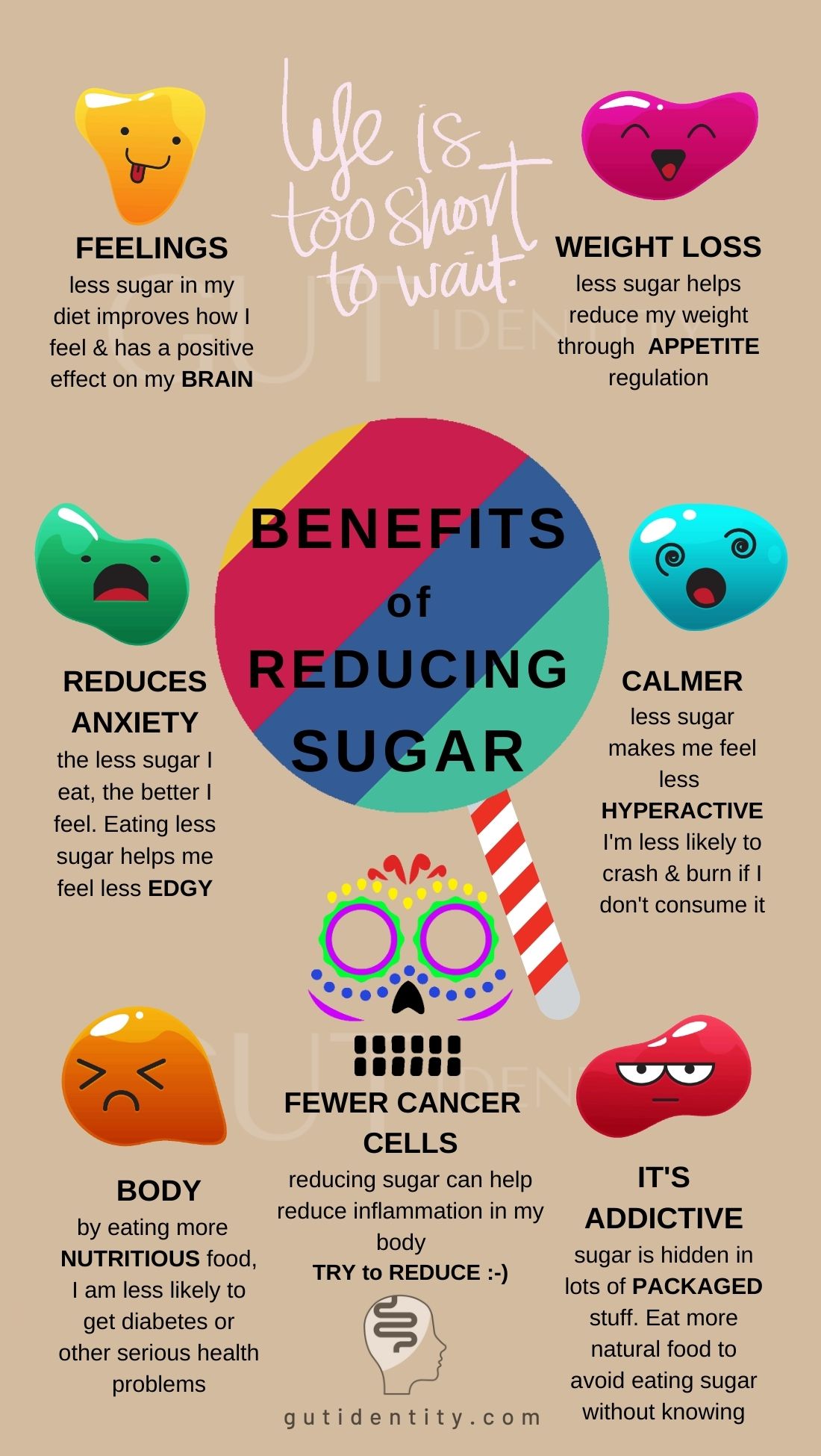
low-carb eating for metabolism control
This is something I’m still learning about. From my basic understanding, metabolism is the ability of our cells to change food into energy in our bodies. The chemical reactions that happen within our cells that factor in things such as age, gender, body size, food consumption and how much our body moves, contribute to this process.
Because I’m not a nutritionist and a novice in this area, here’s a basic short video from someone who does 🙂
But what does this mean for low-carb diets? In a 2018 study published in the BMJ, the effects of a low-carb diet on energy expenditure and weight loss were examined. They looked at different amounts of carbs in the diet and how this would affect weight maintenance or weight gain. What the study found that was of particular interest to me, was that two hormones that affected appetite were decreased in the group that had the lowest amount of carbs in their diet. These are called ‘ghrelin‘ and ‘leptin‘. While a lot of popular diets focus on reducing calories, maybe we should be looking more at reducing carbs. I know that if I eat lots of carbs, I’m always searching for more not long after. But again we are all different so we just have to find something that works for our unique biological makeup.
Reducing triglycerides through a low-carb diet

Another topic I’m still learning about but that’s where my love for research comes in. If there’s anything I want to research, it’s to do with my health. What goes in my body has become very important to me over the past 4 years. When you lose your health suddenly, you want to make sure you don’t rock the apple cart AT ALL!
Triglycerides are the main fat-carrying particle in our bloodstream and are a measure of heart health as stated by the Mayo Clinic. Research has shown that our heart health can be helped by a low-carb diet provided that the protein and fat consumed are coming from healthy sources. Where I get my meat from, including my eggs, is important. I don’t want to be consuming added hormones or eat meat that comes from traumatised environments such as caged hens for instance. And if I can buy organic, I will. I’m also very grateful I can’t eat at places like McDonald’s and the like due to Coeliac Disease. I used to live on this rubbish and was heading to an early grave due to my eating habits.
related post
low-carb eating and brain health

For anyone out there suffering brain fog, or ADHD like me, you’ll understand how important it is to lift that fog and function better. Low-carb diets have been shown to improve brain health and even help with some neurological disorders and diseases such as Parkinson’s Disease. While for the majority of the time I keep my daily carbs under 50 grams, I still have healthy treats usually on the weekend.
I find that by sticking to less than 50 grams of carbs per day, my ability to process information, think clearly, and not feel sluggish, have all improved dramatically. I used to be very hyperactive but have managed to reduce this greatly over the past 4 years by tweaking my diet. I’ve begun to learn what foods enhance my thinking ability, and what hinders it.
what I eat is just part of the process
Now it’s really important to note that this was not an overnight change. I had a really good nutritionist, and I did my own extensive research. It’s also important to state that while I think my diet was causing me the most frustration with brain fog and hyperactivity, I have made many lifestyle changes in recent years that have positively impacted my health. The main ones are; reducing anything toxic in my environment such as relationships, jobs, and environmental toxins, plus developing healthy coping mechanisms, and the usual things like exercise and getting enough sleep.
Here’s a sample of the strategies I use:
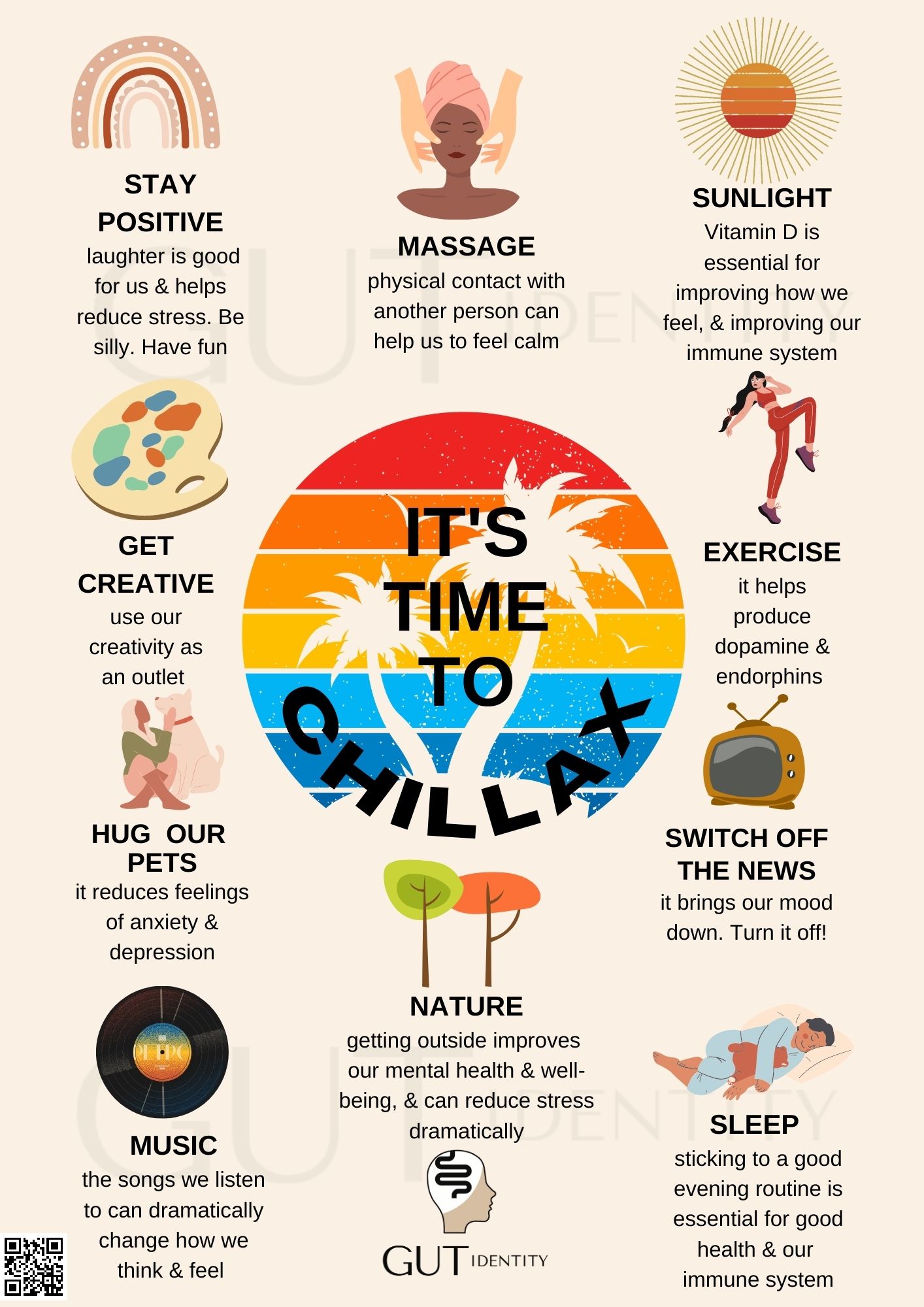
What’s probably the biggest takeaway from doing low-carb, is actually trying it and seeing what the result is. It won’t probably have much of an impact if it’s only done for a few days, but when consistently done, even for just a few weeks, the results can be dramatic. And this is what keeps me going because brain fog and hyperactivity aren’t fun!
greater weight loss – now who wouldn’t want that if it makes us healthier?

As someone who used to crash diet, binge, and then crash diet again, having the ability to still eat really well is a massive bonus. No longer do I feel like I’m missing out on anything. This has been the biggest turnaround for me as I do like to go out and enjoy myself. Trouble was, I used to do it too much. Anything in excess is going to have a negative impact on our bodies, so having the ability to be disciplined around 90% of the time, while still enjoying life, is a massive bonus.
By following a low-carb diet the majority of the time, I still get to have my sometimes fortnightly pub lunches (not overeating of course), a healthy brunch at my favourite cafe, and the occasional wine. It’s a lifestyle I can easily maintain without going too far off the rails while maintaining a healthy weight.
learning how to achieve balance
If I start to feel that the balance has been tipped too far, I can quickly correct it using a low-carb diet. How I do this by using the MyFitness Pal app where I’ll measure my carb intake. I do have to add everything into the diary but by doing this, I get very familiar with the foods I’m consuming. This then increases my knowledge of what I’m putting into my body making me more aware of what’s in the food I’m consuming.
The initial weight loss that can be achieved by dramatically reducing carbs can be quite dramatic. Because of this, it actually encourages sticking with it. Now I’m not talking about being crazy and losing extreme amounts of weight which is dangerous, but more so using it to regulate excess weight can be used to its advantage. It’s a way of regulating and maintaining balance.
fewer cravings and getting back on track

As mentioned earlier, I lived on sugar. I’d constantly want more. That’s why low-carb works well for me because I have a sweet tooth. If I have sugar or anything high in carbs, I want more. being able to carefully monitor my carb intake, helps me to regulate those cravings. I no longer search for junk. I feel what my body needs and give it that. For me, it’s about being more in tune with my body. I can also now have my treats (although this isn’t the crap I used to eat) without having the need to want to get more and more.
There’s one important thing I’ve learned from this. If I do have a day where I might have more treats than expected, I know that I can immediately go back to how I was eating before without going back to old habits. I now know that as soon as I go back to eating low-carb, my cravings disappear and I’m back on track.
low-carbs and less belly fat

This one is a major. It’s incredible just how much fat comes off the belly when doing low-carb. It’s the first to go and can give a massive moral boost if this is an area you struggle with. Clothing fits better. Being able to move is easier. Life in general gets better. Confidence also improves. The only way to see if this works is to give it a try. Seek nutritional guidance around this as it can be a little complicated at first. It’s important to always consult someone if you’re making changes to your lifestyle as we’re all different and in different situations.
bottom line – know your body because you are the one living in it

I’ve been on plenty of diets over my life but I’ve never found something that I can sustain long-term and that’s easy to get back on track if there’s a slip-up. If you’re struggling to keep on top of your weight or just need something to keep you on track, research low-carb or keto diets. They are easy to keep at long term, and are a fairly inexpensive lifestyle change. Due to the reduction in the consumption of high-carb food, you can still eat well without feeling like you’re missing out on anything.
But again I will have to state. We are all different. we all live in different situations and environments. We have to do what’s right for us as we’re all unique. Do what works for you! Experiment. You know your body and if you don’t, investigate it. The only way we truly find something that works for us is to truly know ourselves. 😉
Disclaimer: I’m not a doctor or nutritionist so please seek your own medical advice.
for more info, get the ebook
When it comes to reducing the symptoms of ADHD naturally, starting with food should be the number 1 place to start whether it’s for children, teens, or us adults. Out of all the strategies I’ve done over the years, including medication, changing what I consume has made the biggest impact. Some of the biggest challenges I’ve found with altering my diet are that I’ve had to learn about what I’m eating, be extremely consistent, and do research which takes time.
So, I’ve compiled this workbook to help with the planning and implementation of learning what to eat, what to avoid, and what we can do to regulate our energy levels to feel better. Just work through the ideas or pick and choose what you want to focus on first. Try not to be overwhelmed and work at your own pace.
Click on the product image to go straight to the ebook with a bonus ebook on the essential vitamins, minerals and nutrients needed to help our brain health.
